News
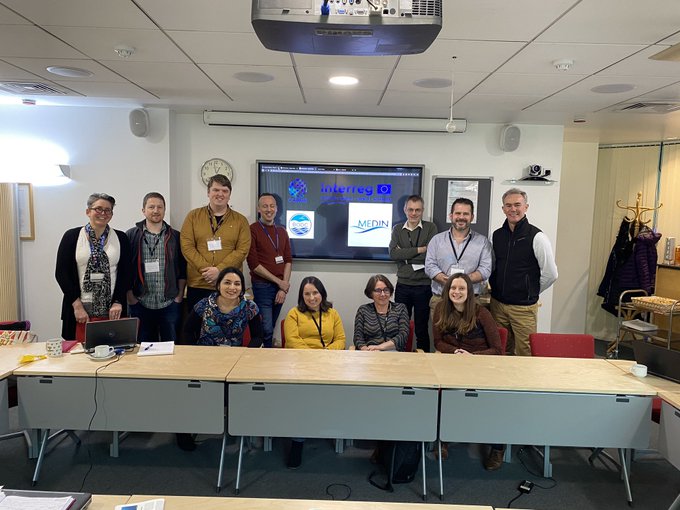
COMPASS data managers haven’t let COVID-19 stand in the way of progress!
The Data Management team has been busy this year with a cavalcade of activities. First up, back in February 2020, the data management lead, Marine Institute facilitated a workshop, hosted by the British Oceanographic Data Centre (BODC) at their headquarters at the University of Liverpool’s campus. The workshop covered a broad range of talks on […]
Read More
SAMS hosts COMPASS annual meeting at Oban
The COMPASS 2019 Annual Seminar was held at Scottish Association for Marine Science in Oban, Scotland on 26th November. Attended by project partners, policy leads and stakeholders, the seminar provided an update on progress from the project and presented current findings relating to the salmonids and cetaceans (whales and dolphins) work and in particular, how […]
Read More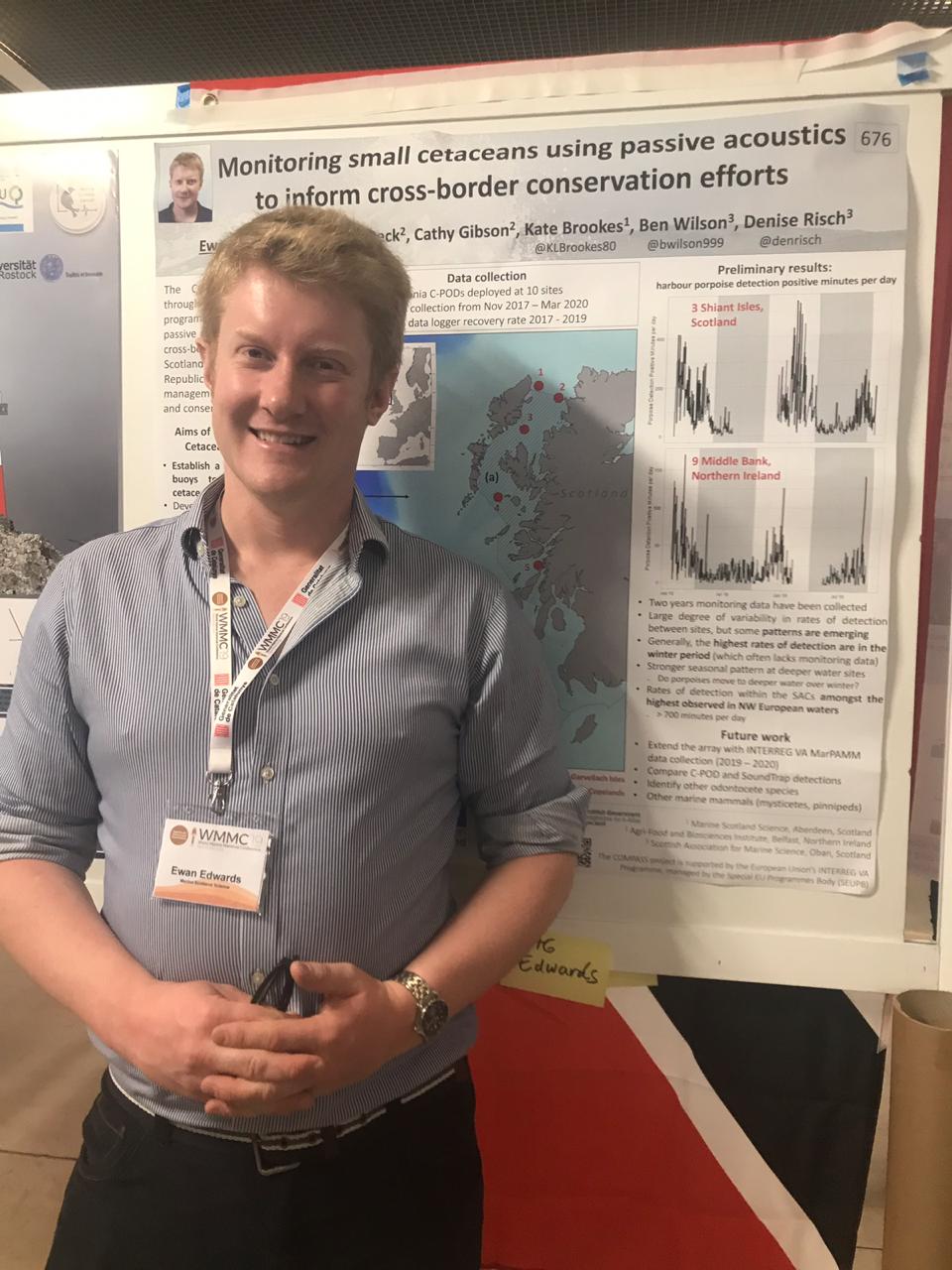
COMPASS at the World Marine Mammal Conference
The Society of Marine Mammalogy joined together with the European Cetacean Society (ECS) to co-host the World Marine Mammal Conference in Barcelona. The meeting in December brought together top leaders in the field from every continent, including three scientists working on the COMPASS project: Ewan Edwards from Marine Science Scotland (MSS), Denise Risch and Ben […]
Read More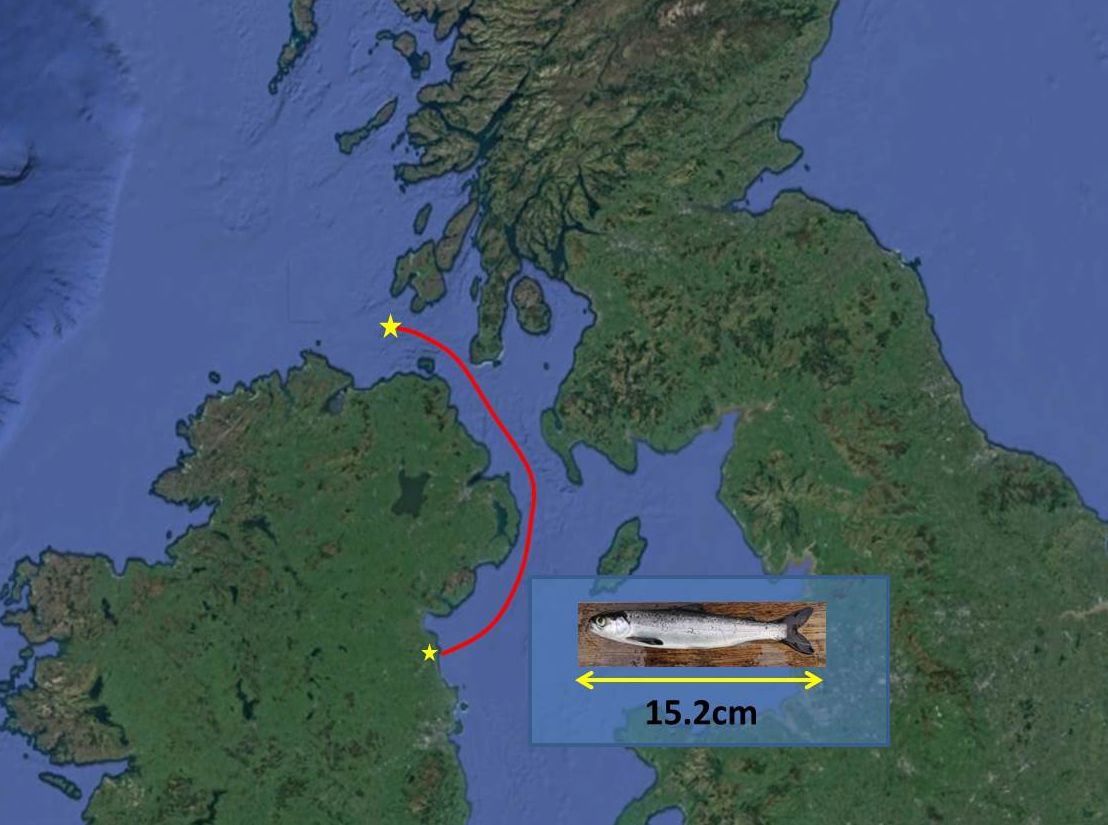
Go north, and swim fast!
The tagging work was carried out by scientists from IFI (Dr James Barry) and AFBI (Dr Richard Kennedy) who tagged and analysed the movements of 130 salmon smolts as they left their rivers of birth in the spring of 2019. This work was supported by a local angling clubs, including The Dundalk and District Brown trout and Salmon Anglers, who helped to install fish traps which enabled the tagging and release of fish. A network of acoustic receivers were moored to the seabed along the coast from Drogheda to the north east coast by researchers from IFI and AFBI, to track the tiny acoustic transmitters in the salmon as they migrated from the rivers to the open ocean.
Read More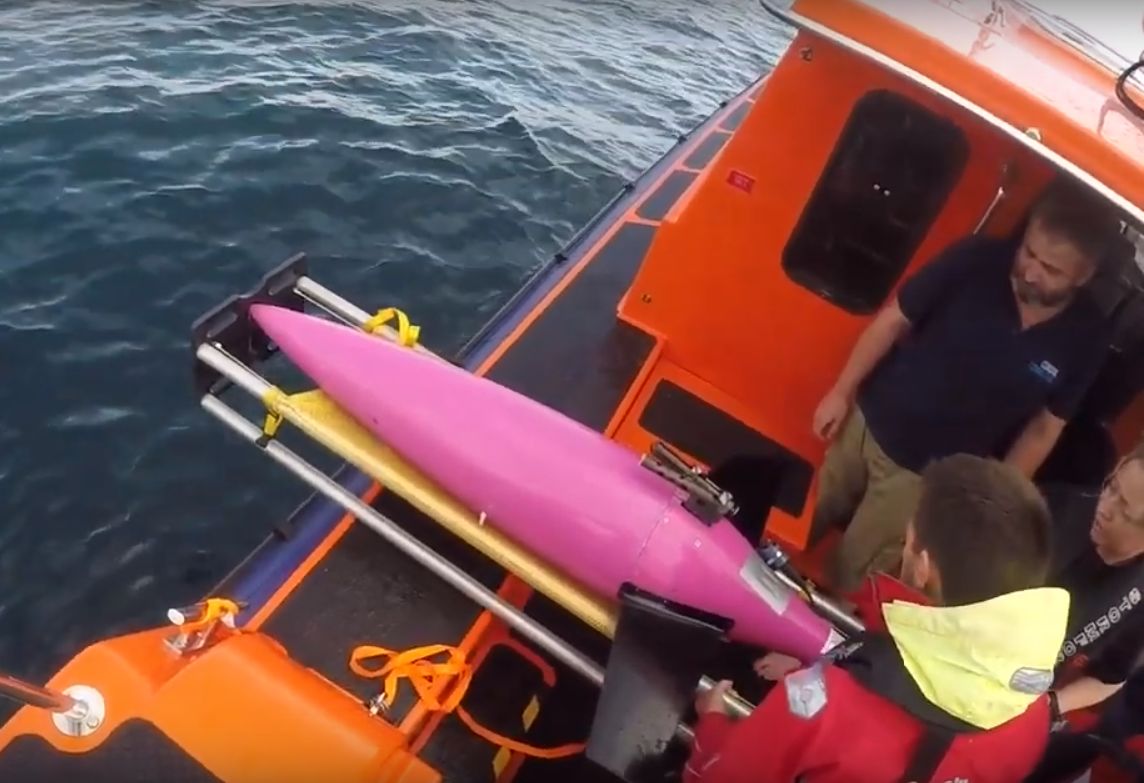
The Robot that listens to whales
Dr Denise Risch, leader of the COMPASS Marine Mammals work package is featured in a video launching a new autonomous underwater vehicle (UAV) , built by the Scottish Association of Marine Science (SAMS). This vehicle, an ocean glider, will travel a pre-programmed route from the coast of Scotland to the NW or Ireland and back […]
Read More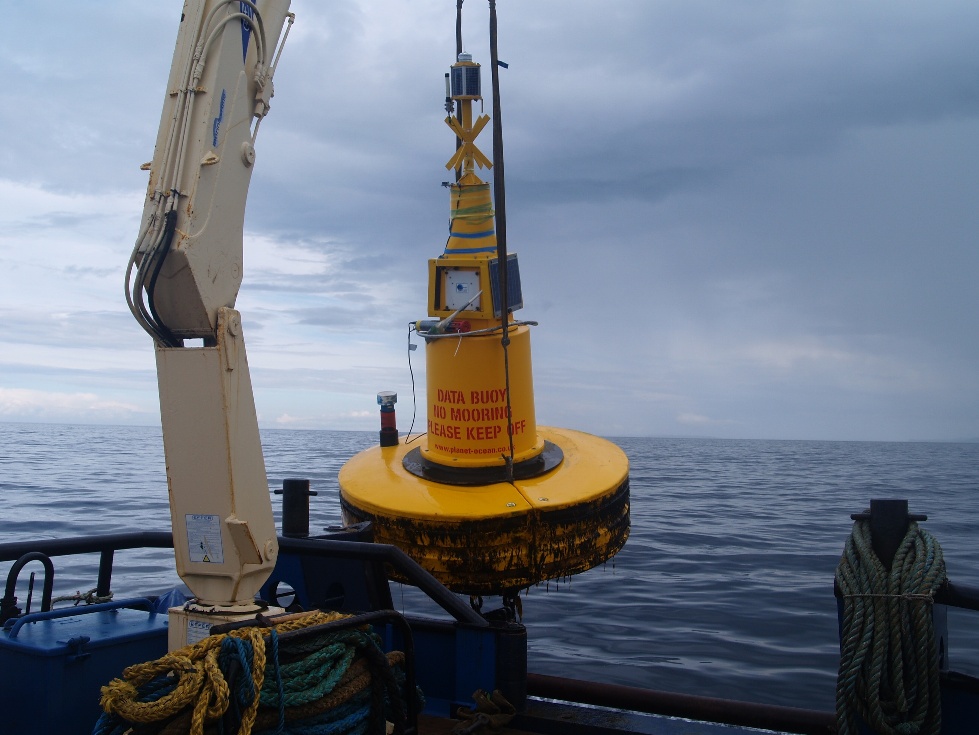
COMPASS network gets high-tech upgrades
The main aim of the COMPASS project is to deliver the first fully coherent network of monitoring buoys across our regional seas. To do this, we are already using existing and emerging technologies. However, innovation approaches are required on COMPASS to ensure there is integration of this equipment. You can see this in the development of […]
Read More